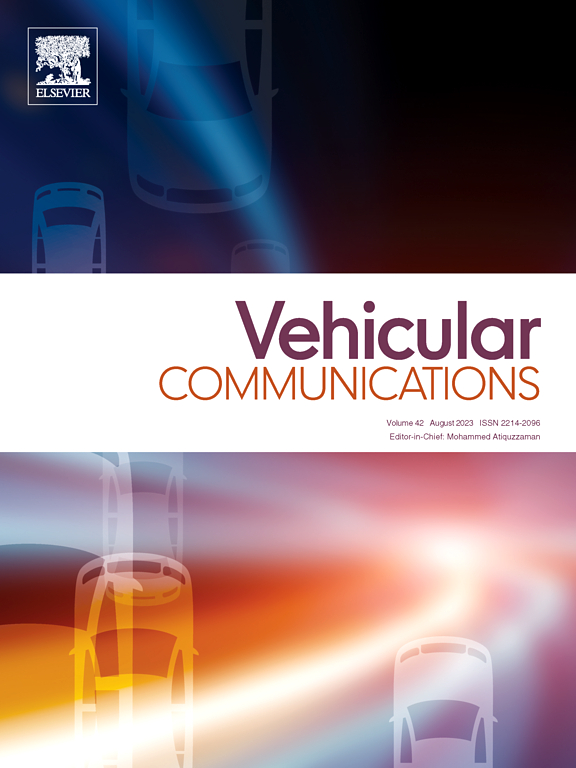通过深度强化学习优化mimo车辆网络中的任务卸载
IF 6.5
2区 计算机科学
Q1 TELECOMMUNICATIONS
引用次数: 0
摘要
移动边缘计算(MEC)有效减轻了车辆在处理计算密集型任务时由于资源限制而面临的计算负担。然而,传统方法通常采用粗粒度的任务卸载策略,这些策略利用顺序协议和离散的操作空间,从而导致高延迟和增加的能耗。这些限制使得这些策略不适合实时应用。为了解决这些挑战,提出了一种创新的计算卸载策略,专门设计用于最小化多车辆,多服务器车联网(IoV)系统的长期平均计算成本。MEC系统模型采用多输入多输出(MIMO)技术构建,可促进所有车辆同时上行传输,大大减少数据上传所需的时间。随后,采用连续的动作空间,提高决策的灵活性和准确性。此外,引入了批约束q学习(batch - constrained Q-learning, BCQ)来进一步约束策略所采取的操作,通过批约束机制减轻过于乐观的估计。最后,开发了具有批约束q -学习的双延迟深度确定性策略梯度(TD3BCQ)框架,以实现连续动作空间内任务卸载期间本地执行和权力分配的细粒度决策。实验结果表明,该方案实现了更均衡的卸载策略,更好地利用了可用的计算资源,与基线相比,性能提高了约20%。本文章由计算机程序翻译,如有差异,请以英文原文为准。
Optimizing task offloading in MIMO-enabled vehicular networks through deep reinforcement learning
Mobile Edge Computing (MEC) effectively alleviates the computational burden faced by vehicles in processing compute-intensive tasks due to resource limitations. However, traditional approaches typically employ coarse-grained task offloading strategies that utilize sequential protocols and discrete action spaces, resulting in high latency and increased energy consumption. These limitations render such strategies unsuitable for real-time applications. To address these challenges, an innovative computation offloading strategy is proposed, specifically designed to minimize the long-term average computation cost in a multi-vehicle, multi-server Internet of Vehicles (IoV) system. The MEC system model is constructed using Multiple-Input Multiple-Output (MIMO) technology, which facilitates simultaneous uplink transmissions from all vehicles, significantly reducing the time required for data uploads. Subsequently, a continuous action space is adopted to enhance both the flexibility and precision of decision-making. Additionally, Batch-Constrained Q-learning (BCQ) is introduced to further constrain the actions taken by the policy, mitigating overly optimistic estimates through a batch constraint mechanism. Finally, the Twin Delayed Deep Deterministic Policy Gradient with Batch-Constrained Q-learning (TD3BCQ) framework is developed to enable fine-grained decision-making for local execution and power allocation during task offloading within a continuous action space. Experimental results demonstrate that the proposed scheme achieves a more balanced offloading strategy and better exploits the available computing resources, leading to an approximate 20% improvement compared to the baselines.
求助全文
通过发布文献求助,成功后即可免费获取论文全文。
去求助
来源期刊

Vehicular Communications
Engineering-Electrical and Electronic Engineering
CiteScore
12.70
自引率
10.40%
发文量
88
审稿时长
62 days
期刊介绍:
Vehicular communications is a growing area of communications between vehicles and including roadside communication infrastructure. Advances in wireless communications are making possible sharing of information through real time communications between vehicles and infrastructure. This has led to applications to increase safety of vehicles and communication between passengers and the Internet. Standardization efforts on vehicular communication are also underway to make vehicular transportation safer, greener and easier.
The aim of the journal is to publish high quality peer–reviewed papers in the area of vehicular communications. The scope encompasses all types of communications involving vehicles, including vehicle–to–vehicle and vehicle–to–infrastructure. The scope includes (but not limited to) the following topics related to vehicular communications:
Vehicle to vehicle and vehicle to infrastructure communications
Channel modelling, modulating and coding
Congestion Control and scalability issues
Protocol design, testing and verification
Routing in vehicular networks
Security issues and countermeasures
Deployment and field testing
Reducing energy consumption and enhancing safety of vehicles
Wireless in–car networks
Data collection and dissemination methods
Mobility and handover issues
Safety and driver assistance applications
UAV
Underwater communications
Autonomous cooperative driving
Social networks
Internet of vehicles
Standardization of protocols.
 求助内容:
求助内容: 应助结果提醒方式:
应助结果提醒方式:


